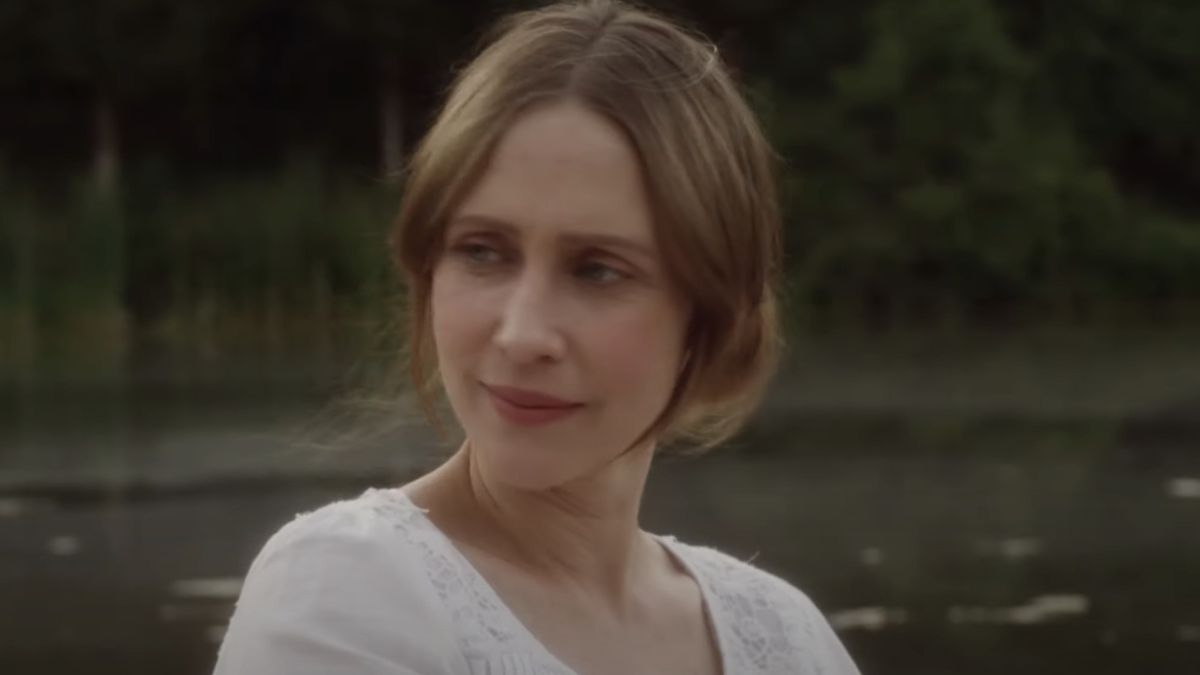Sundance Review: Vera Farmiga Directs And Acts In The Terrific Higher Ground

It wasn't like Vera Farmiga to complain to her manager about the kind of scripts she was reading, but even after her Oscar nomination for Up in the Air she still wasn't getting the offers she wanted. So she took things into her own hands, not just sticking with the in-development independent project Higher Ground but signing on to make it her directorial debut. There were so many challenges to overcome, from a tight four weeks to pull together the financing to Farmiga's pregnancy during the shoot, but the actress gracefully sidesteps every one of them, turning in a lyrical and heartfelt kind of coming-of-age story tinged with large questions about religion and family that never overpower the emotional central narrative.
I saw Higher Ground the morning after the big premiere of Kevin Smith's Red State, which depicts fundamentalist Christians as violent, angry outsiders. Though Higher Ground is tinged with feminist awareness and plenty of questions about religious doctrine, it is fair to its fundamentalists, basically a bunch of hippies praying in circles with guitars and making sure their peasant blouses are appropriately modest. After a shotgun wedding with her high school boyfriend Corinne (played by Farmiga in the present and Farmiga's younger sister Taissa in the flashbacks) falls into the Christian community, both thanks to the support for a young mother and some real religious fervor experienced even as a child. But Corinne is also a budding intellectual and a writer, and though she's happy to raise her ever-expanding brood and be subservient to her husband Ethan (Joshua Leonard) as the Bible intend, her larger ambitions peep out once in a while and mark her as a renegade. Little by little, and much to Corinne's horror, her bedrock faith starts to erode in the face of her own desire for independence, her shock after a certain tragedy, and a failing relationship with the husband she never quite belonged with in the first place.
Screenwriter Carolyn Briggs adapted the film from her own memoir, but the movie makes the most of the lackadaisical narrative structure of most true-life stories, embedding us into Corinne's emotional state so thoroughly that we follow her gladly. The structure falters a bit moving into a third act-- it's hard to conjure up a neat ending for a story about losing faith but moving on with your life-- but even that is anchored by Farmiga's deep-rooted, phenomenally compelling performance. She invests Corinne with such life and intelligence, allowing even the staunchest religious skeptic to identify with her story and asking us, time and again, to ask the same questions about faith and morality that Corinne does. Behind the camera Farmiga is just as incisive, photographing the past with a rich but skeptical nostalgia and paying attention to all the little details that make this world come alive.
Even though Higher Ground concerns itself with such weighty questions and digs deep into religious doctrine, it's a marvelously easy watch, funny and fleet at one moment and utterly riveting the next. Farmiga's central performance is balanced beautifully by the supporting cast, which includes Broadway stalwarts Bill Irwin and Donna Murphy as well as newly minted Oscar nominee John Hawkes. The film is so textured, and such a worthwhile emotional journey-- it's one of the few non-documentaries I've heard earning sobs from the audience-- that I'm dying to revisit, though the punishing Sundance schedule means it will likely be a while. Still, when Higher Ground finds a distributor-- and I sincerely believe it will-- you'll also have the chance to marvel over and over at Farmiga, who isn't just the great actress we all know her to be, but a promising, genuine talent behind the camera as well.
CINEMABLEND NEWSLETTER
Your Daily Blend of Entertainment News
Staff Writer at CinemaBlend
Most Popular







